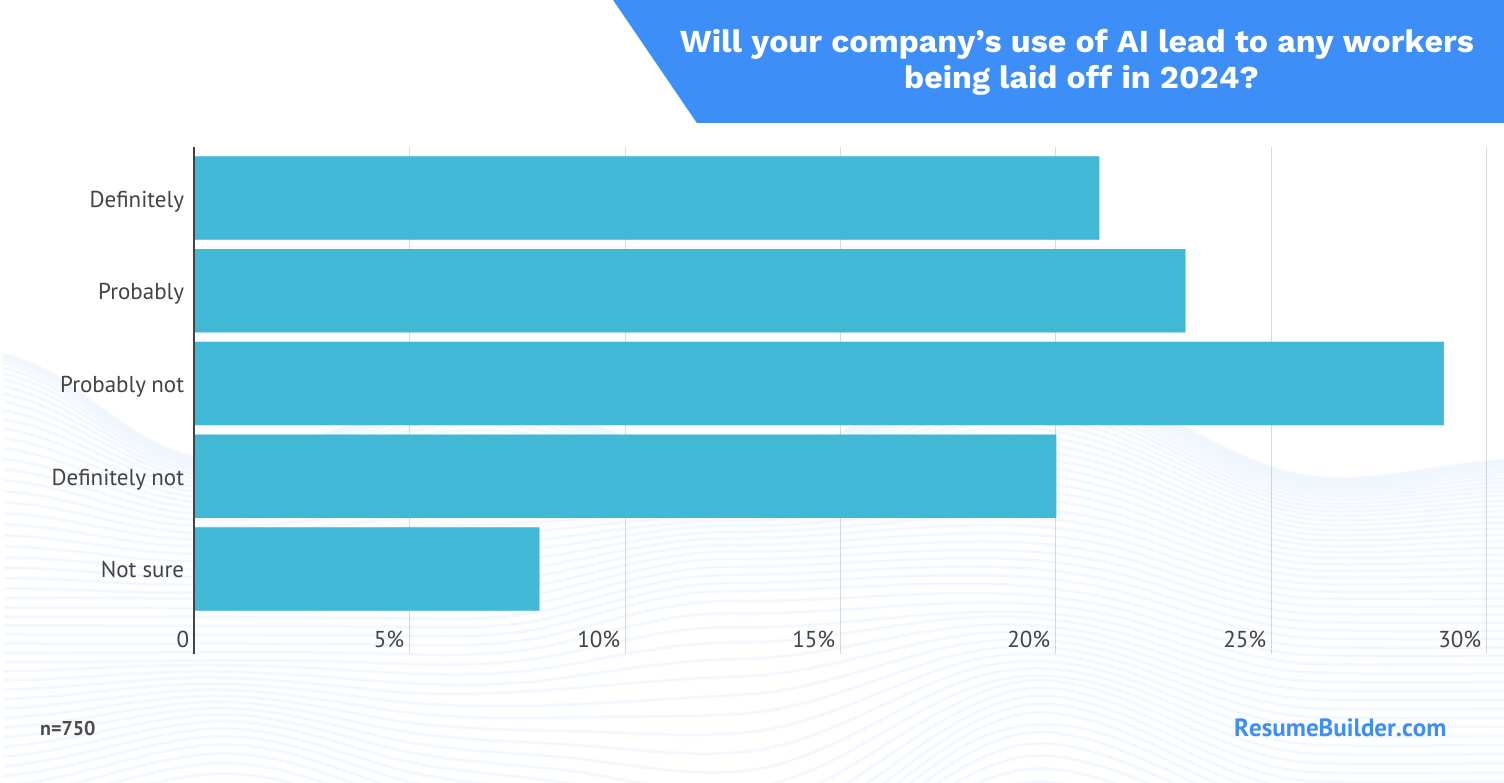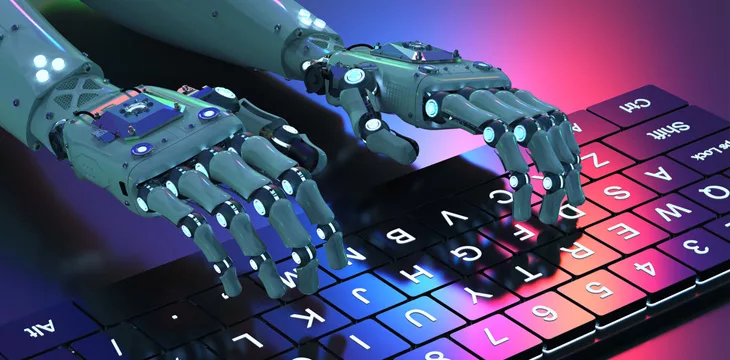|
Getting your Trinity Audio player ready...
|
A survey conducted by ResumeBuilder explored the evolving relationship between artificial intelligence (AI) and the future of work.
The poll, which included responses from 750 business leaders at companies either currently using or planning to implement AI in 2024, looks at how AI is reshaping the corporate landscape.
Commissioned by ResumeBuilder.com and conducted by Pollfish, the survey targeted a national sample of 750 individuals who met specific criteria, including being 25 or older, employed for wages or self-employed, earning at least $75,000 annually, and working at a company with more than 11 employees. The respondents held roles like C-level executives, presidents, CEOs, directors, owners, CTOs, or CFOs, the poll revealed:
AI adoption and its consequences for employment
A significant finding from the survey is that 53% of companies already utilize AI, with an additional 24% planning to adopt it in 2024. However, this technological leap substantially impacts the workforce, with 37% of companies that have integrated AI reporting that they replaced workers in 2023 due to AI implementation, and 44% of businesses anticipate that AI will result in layoffs in 2024.

These statistics confirm the fear that workers have when it comes to AI, with many believing AI systems and automation will put them out of work.
“I’m not surprised by these results, and I hope this article is a wake-up call for anyone rejecting AI in their industry or function,” says ResumeBuilder’s resume and career strategist Julia Toothacre.
“I would advise employees to consider all parts of their position and what could possibly be taken over by AI. Figure out what part of your position can’t be taken over by AI or where AI might need human intervention and become the go-to person for those tasks. Employees need to find ways to grow their skills and stay relevant in their field if they don’t want their job to be given to AI,” she added.
One effective strategy is to stay at the forefront of technological advancements by acquiring the necessary skills to create or operate new technologies. Employers are beginning to recognize the need for this type of education and are offering training programs to help their workforce adapt to new technology. A notable example of this is Microsoft‘s (NASDAQ: MSFT) recent partnership with the American Federation of Labor and Congress of Industrial Organizations (AFL-CIO), whose goal is to train workers in AI usage and integrate their feedback into developing new AI-powered technology.
In support of this idea, the survey found that 96% of companies planning to hire in 2024 value candidates with AI expertise, viewing it as either very or somewhat beneficial. Additionally, 83% of these firms believe that employees with AI skills are more likely to maintain job security than those without.
Current and future AI applications
According to the report, existing AI users are using it for customer support (67%), research (66%), and summarizing meetings or documents (61%). Companies planning to start using AI in 2024 have similar priorities, with customer support (62%), document summarization (57%), and research (52%) leading to their anticipated uses.
Overall, data shows that AI continues to automate essential yet methodical tasks like initial client or customer interactions, data analysis, and document summarization and is on track to play an increasingly large role in the workplace this coming year.
With the amount of traction that AI-powered products and services have picked up, it’s clear that the technology is not just a temporary trend but a permanent fixture in our daily lives.
As we move forward, individuals face a crucial choice: adapt to the evolving AI-driven world or risk being sidelined by this unstoppable technological wave.
In order for artificial intelligence (AI) to work right within the law and thrive in the face of growing challenges, it needs to integrate an enterprise blockchain system that ensures data input quality and ownership—allowing it to keep data safe while also guaranteeing the immutability of data. Check out CoinGeek’s coverage on this emerging tech to learn more why Enterprise blockchain will be the backbone of AI.
Watch: Turning AI into ROI

 02-14-2026
02-14-2026 




